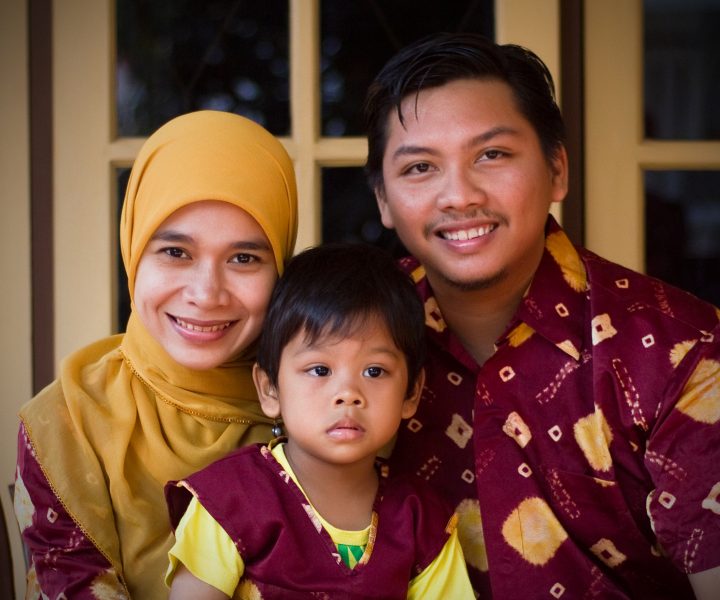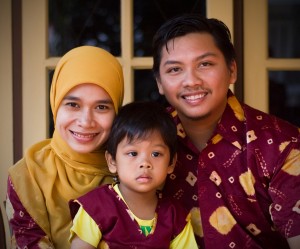Sahur, the pre-dawn meal Muslims take before the first call to prayer during Ramadhan is tricky. Most Indonesians wake up before 4am, have a quick bite to eat and a few glasses of water, before praying and catching a few more minutes of sleep before it is time to wake up and head to the office.
But Lutfi, a law clerk at the Constitutional Court, likes to use that time between Sahur and his morning commute to the office, to take his four-year-old son by the hand for a walk around the block. Sure, it would be nice to grab 45 more minutes of sleep in the morning, but for Lutfi, who sometimes ends up staying late at the office or getting caught in traffic on the way home, that time with his son is precious.
“My son asks me about fasting,” says Lutfi, who was born and raised in Medan, but has called Jakarta his home since 2005. “I explain to him that not eating is only a small part of Ramadhan. It’s not everything. He doesn’t get the spiritual part right now, but that will come.”
Lutfi explains that while Ramadhan is a spiritual time, where he can reflect on his life and family, build discipline and spend more time in prayer and contemplation, there is also a certain sense of nostalgia that comes with the holy month. And for Muslims living in the heart of Jakarta, the village sometimes seems a million miles away.
“Actually I miss the Ramadhan atmosphere of the village,” Lutfi explains. “Here in Jakarta we lose a little bit of that communal atmosphere and feeling. You see it on TV, but it’s not the same. We work from morning until night, but when I mudik (return to hometown) I can really feel it. Maybe it makes me nostalgic, it reminds me of when I was little and I used to go around the village in the early morning hours with my friends telling everyone it was sahur.”
So, while Lutfi counts the days until he can return to Medan and spend the holiday with his friends and family, what does he think of fasting in Jakarta? How does he feel when colleagues or friends who are not fasting eat or drink in front of him?
“Fasting is very personal,” he says. “You can eat in front of me. You can drink and eat. I don’t care. I’m fasting for myself and God, not for those people around me.”
For Lutfi, fasting isn’t abstaining from eating and drinking, but rather the perspective gained from the clarity that comes with not having your day dictated by food or drink.
“The most important thing about fasting is to think about those others around me who have to fast every day because they don’t have enough to eat. It creates perspective. Fasting also helps clean your body of toxins and allow your organs a bit of rest. And it’s not just eating, it’s about emotions. It’s about finding peace, being patient and empathetic.”
So, what does Lutfi look forward to when it comes to breaking the fast?
“It’s not something that is really important to me. That’s not what fasting is about. It’s about my family and the time we share together. It’s about those walks with my son.”





